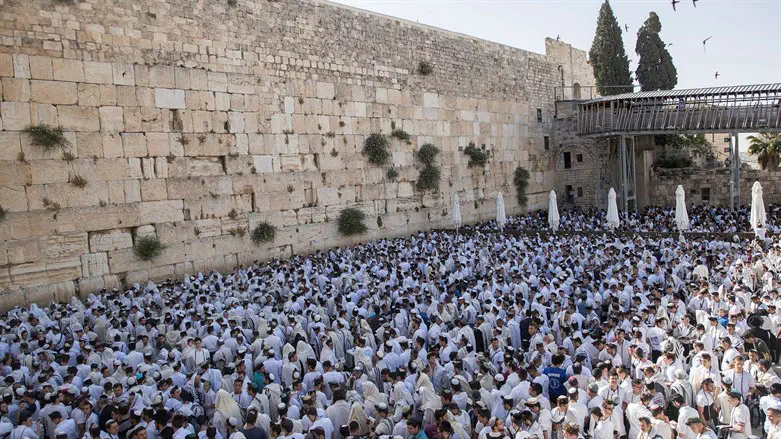
According to a new survey, 47 percent of the Jewish population of Israel supports the Western Wall Compromise Plan (also known as the Kotel Outline), with just 32 percent opposed to the Plan.
The survey was conducted by Panels Politics on behalf of the Institute for Research on Judaism and Zionism.
Among those whom the survey described as “people with a firm opinion,” 60 percent expressed themselves in favor of the Plan. Among the self-described “traditional” population, 46 percent of respondents declared themselves in favor of the Plan, as opposed to 30 percent opposed.
The results were somewhat confused, however, by parallel findings that a majority of Israelis (59 percent) don’t actually know what the Western Wall Compromise Plan is. Even among the haredi sector, just 53 percent were familiar with the Plan, with younger people less likely to know what it’s all about than older (just 36 percent of haredim under the age of 30 knew what the Plan is).
A different question asked in the same survey was whether the Western Wall is primarily a religious site or a national symbol. 57 percent of respondents replied that they see the Kotel as primarily religious, as opposed to just 33 percent who see it as a national symbol first and foremost. Among the secular population, however, the results were reversed, with 51 percent describing the Kotel as primarily a national symbol and 37 percent seeing it as a religious site.
The issue is one that has been highly politicized, with politicians from across the spectrum taking one side or another and promoting their positions among their electoral base. However, the survey revealed that a majority of the population are not at all keen on having politicians weigh in on the issue, with an overwhelming 94 percent of respondents saying that they did not think that politicians should have the final say on whether the Plan is implemented.
When asked who should have the deciding voice, 50 percent of those surveyed said that they think the general public itself should decide. Sixty-four (64) percent felt that the Chief Rabbinate should not be entrusted with the decision.
“The Israeli public believes that the Kotel Plaza belongs to the people and that it is primarily a religious site,” concluded Daniel Goldman, founder of the Institute for Research on Judaism and Zionism. “That is why the general public supports the implementation of the Compromise Plan which enables every Jew, whoever he is, to pray in the manner of his choosing, at this holy site; it is also why the general public thinks that politics has no part to play here, and that the people as a whole should decide. The results of this survey send a clear message to politicians and ministers: Listen to the people and find a solution that enables all streams of Judaism to pray in their own way at the Kotel Plaza.”